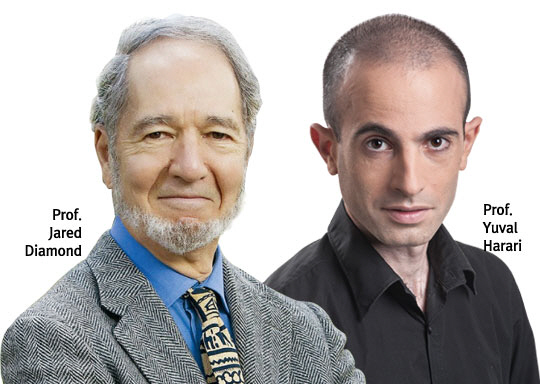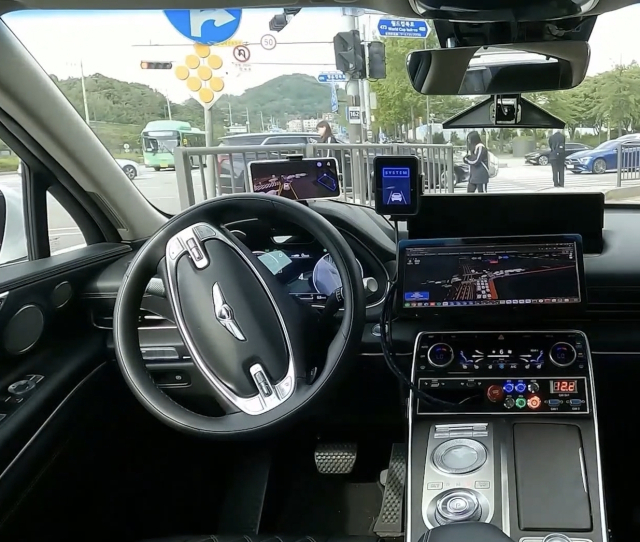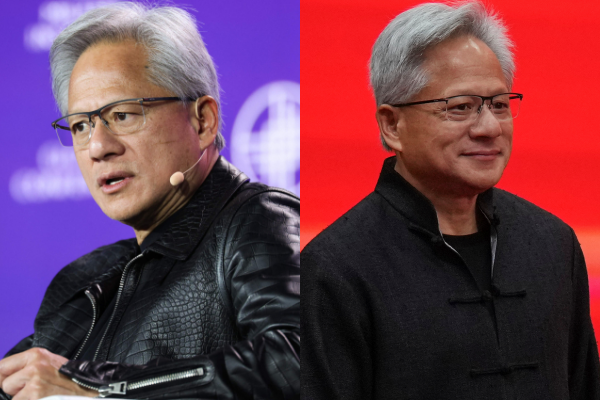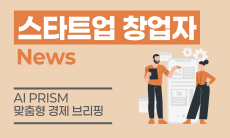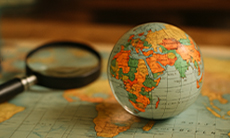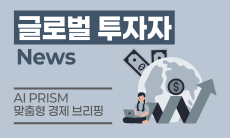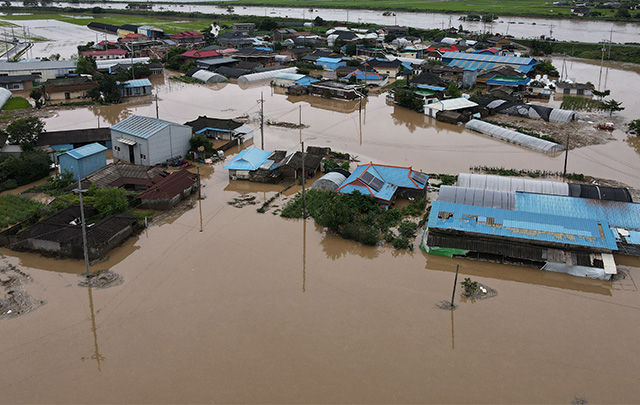Guess what would be the answer from two great scholars-Jared Diamond, who is called Charles Darwin of 21st century and the author of ‘Guns, germs and steel’, and Yuval Harari, who is a professor of history and the author of the international bestseller ‘Sapiens’?
The big talk of the century which Dr. Diamond and Prof. Harari had had, was arranged by Seoul Economic Daily, one of the oldest economic daily in Korea, celebrating the Seoul Forum 2016. ‘SEOUL FORUM 2016’ will take place at the Shilla Hotel in Seoul, Korea, from May 11 to 12.
This is the world’s first talk between two scholars through the e-mail. Dr. Diamond and Prof. Harari respectively located in USA and Israel, so have exchanged opinions by sending and receiving E-mail. Seoul Economic Daily made a request to Prof. Yuval Harari to ask six questions. However Prof. Yuval Harari answered the questions first and then threw the questions to Dr. Diamond with his comments. Dr. Diamond also gave his opinion about those questions and comments. And as Prof. Harari added his opinion on Dr. Diamond’s answer. Dr, Diamond’s final responses will be unveiled at the ‘SEOUL FORUM2016’ from May 11 to 12.
And for now Seoul Economic Daily releases a full talk of two great scholars ahead of the ‘SEOUL FORUM 2016’.
/Eunyoung Seo supia927@sedaily.com
▲You‘ll be able to check out the whole questions that we’ve asked the two great scholars.
1. What will be the greatest driving force for changes of human society in the future?
Prof. Harari: The greatest driving force will undoubtedly be technology, especially computer science and biotechnology. Whereas in the past the main products of the human economy were guns, steel, textiles and food, the main products of the twenty-first-century economy will be bodies, brains and minds.
Throughout history humans have changed the world around them - they cleared forests, domesticated plants and animals, dug irrigation canals and built roads, bridges and cities. But humans did not have the power to change themselves. We still have the same bodies and minds we had in the Stone Age. In the coming century, humans will of course continue to change the outside world, but for the first time in history they will also gain the power to reshape their own bodies and minds.
Dr. Diamond: While technology will affect practical features of our lifestyle, the fundamental factors affecting our lifestyle will continue to be two, just as they are at present: finite resources, and human inequality.
With regard to finite resources, much of the work of economists is focused on growth, as if that will forever be possible. But a textbook of economics carried on its title page the following sentence: “In our world of finite resources, the only people who believe in the possibility of indefinitely continued growth are - idiots, and economists.”
Limits to the growth of human populations and consumption are set by world resources: water, seafood, land and soil for agriculture, sunlight, space, and other resources. Already, with human population and consumption just as they are at present, a substantial fraction of the world‘s people are living below the poverty level. The world currently holds almost seven and a half billion people, of whom South Koreans and Americans and Europeans and Japanese and Australians enjoy a First World lifestyle and consumption rates, while most people make do with consumption rates up to 32 times lower. If all of those poor countries (including China and India and others) succeed in their goal of achieving First World consumption rates, then the world’s consumption will be equivalent to that of 75 billion people with the same distribution of consumption rates as at present. While one hears some optimists talking about how the world might perhaps be able to cope with nine billion people, I haven‘t encountered anyone silly enough to say explicitly that the world can hold 75 billion people. Nevertheless, there was a famous economist 20 years ago who said that humans could continue their current rate of population growth indefinitely. If one goes through the numbers, that means that the Earth will hold 10 people per square meter of land in 774 years, a mass of people equal to the mass of the Earth in less than 2,000 years, and a mass of people equal to the mass of the universe in 6,000 years. I‘m glad that I won‘t be alive in that world where I have to share my one square meter of land with nine other people.
In short, resource limits will be one of the two greatest driving forces for change. The other factor driving change will be inequality among the Earth’s people. In today‘s globalized world, poor people in remote countries (like Somalia and Afghanistan) still have access to information about lifestyles of people in rich countries. In today’s globalized world, those people in Somalia and Afghanistan and other poor countries now also have the means to emigrate to rich countries, where they want to achieve a First World lifestyle now, rather than wait for their grandchildren to achieve it 80 years from now. We can‘t have a stable world as long as there are big inequalities among human societies around the globe. Those inequalities are already a big driving force for change today: just read the newspaper any day. They will be an even bigger force in the future.
Prof. Harari: Inequality and resource scarcity will definitely be major forces for change. You cannot really talk about technological change without taking into account the interplay with society and with the environment. But it should be noted that future technological breakthroughs may change the very meaning of “inequality” and of “resources”. With nineteenth-century technology, it was utterly impossible to feed 7 billion people, and even royal families suffered extremely high rates of child mortality. Today, for the first time in history, many more people die from eating too much than from eating too little, and a child born in the slums of Shanghai has a better chance of reaching adulthood than a crown prince 200 years ago. Hence to be poor in 2016 means something quite different from being poor in 1816.
At the same time, the technologies that have enabled us to overcome famine and plagues have also produced completely new problems, such as global warming, which nobody in 1816 feared or expected. Back then, people couldn’t imagine that human industry might change the global climate.
In the coming decades breakthroughs in fields such as biotechnology and artificial intelligence may make present-day concerns irrelevant - while creating far worse unforeseen problems. For example, whereas today we are concerned about inequality between different human nations, by 2100 the main concern may be inequality between different human species or even between humans and robots.
2. How do you expect the future of human society after 100 and 200 years?
Prof. Harari: I don‘t think there will be humans around in 200 years. We will gain so much power, that either we will destroy ourselves, or we will upgrade ourselves into something completely different. The beings that will dominate the planet in the year 2200 will be much more different from us than we are different from chimpanzees or Neanderthals.
Ever since the appearance of life on earth, four billion years ago, life was governed by the laws of natural selection. During all these eons, whether you were a virus or a dinosaur, you evolved according the principles of natural selection. In addition, no matter what strange and bizarre shapes life undertook, it remained confined to the organic realm. Whether a cactus or a whale, you were made of organic compounds. Now science might replace natural selection with intelligent design, and might even start creating non-organic life forms. After four billion years of organic life shaped by natural selection, science is ushering the era of inorganic life shaped by intelligent design. Nobody has the faintest idea what the consequences will be.
Dr. Diamond: That depends upon what human society will be like 50 years from now. I emphasize 50 years, because within the next 50 years we citizens of the world shall either have figured out how to live in a world of finite resources with roughly equal lifestyles around the world, or we shall have failed by then to achieve a stable egalitarian world and will no longer be able to achieve one. In the first of those two cases, the future of human society will provide a lifestyle much better than current Korean and American lifestyles 100 and 200 years from now. In the second of those two cases, 100 and 200 years from now there will either be no longer any people left alive on Earth, or those still alive will be living under Stone Age lifestyles similar to those that my New Guinea friends practiced until recently. The choices that humans and their governments are making today will determine which of those two outcomes we get 50 years from now. My own guess is that I rate the chances of the happy first outcome at 51%, and the chances of the unhappy second outcome at 49%.
Prof. Harari: I too hope that we could create a stable egalitarian world, but I would rate the chances of achieving it at somewhat less than 51%. Over the last 100,000 years humans have proved that they can do almost anything - except achieve stability. Change is the single great constant of history. And the pace of change is only accelerating. Humankind might still surprise us, of course, and attain stability by 2065. Anything is possible. But it isn’t very likely. If we have a future at all beyond 2065, it will probably be based on learning to adapt to chaos.
3. There are lots of views that the robots will have an enormous influence on the future of human society. What influence do you think the robots including artificial intelligence will have on humanity?
Prof. Harari: We need to differentiate between robots and artificial intelligence (AI). Robots are not very important in themselves. They are just a shell. The crucial thing is the intelligence controlling the robots, which may control many other devices as well. We are now developing AI that outperforms humans in more and more tasks, from driving cars to diagnosing diseases. As a result, experts estimate that within 20-30 years, up to 50% of all the jobs in advanced economies will be taken by AI.
Many new kinds of jobs will probably appear, but that won‘t necessarily solve the problem. Humans have basically just two types of skills - physical skills and cognitive skills - and if computers and robots outperform us in both, they might outperform us in the new jobs just like in the old ones. So what will be the use of humans in such a world? What will we do with billions of economically useless humans? We don’t know. We don‘t have any economic model for such a situation. This may well be the greatest economic and political question of the twenty-first century.
Dr. Diamond: Robots and artificial intelligence will affect practical aspects of human life, just as they have for the last 60,000 years, but with increasingly rapid change. Just consider: we have had telephones and automobiles for a little more than a century, commercial television for only about 70 years, and e-mail for only a few decades. Robots and artificial intelligence will cause changes, just as telephones and cars and television and e-mail that already caused changes. But, despite telephones and cars and television and e-mail, people still face the same basic human concerns: how to bring up our children, how to deal with old age, how to resolve disputes, how to stay healthy, how to assess dangers, and other such concerns. We already faced those concerns for tens of thousands of years before we had telephones and cars, and we shall continue to have those concerns after we have more robots and artificial intelligence.
Prof. Harari: Many of the basic concerns facing humanity will indeed remain with us, such as how to bring up our children, how to deal with old age, how to resolve disputes, and how to stay healthy. For in truth, these concerns are not tens of thousands of years old - they are tens of millions of years old. We share them with all other mammals, and with many other animals too. As long as humans retain their present-day bodies and minds, this will not change.
AI is nevertheless different from telephones and cars, because unlike them, it has the power to redesign our bodies and minds, or to replace us altogether. If AI replaces humans as the dominant force on the planet, then for the first time in many millions of years earth will be dominated by beings who have no children, who do not grow old, and who don’t need emotions in order to resolve disputes.
4. In terms of the development of bio-health care technology, what influence do you think life extension and organ transplant will have on the change and form of human societies?
Prof. Harari: In the coming decades, we may well see new technologies that could radically extend human lifespans. This will have enormous influence on human society. I‘ll give just a few random examples.
Since people will live much longer in a world undergoing ever more rapid upheavals, they will have to reinvent themselves again and again. By the time you are 50, whatever you learned as a teenager would be completely irrelevant, but the new knowledge acquired in your fifties will again become obsolete by the time you are 80 or 100. This may result in enormous levels of stress. Longevity itself may become an additional source of stress. The longer you expect to live - the fewer risks you would be willing to take. People will become ever more obsessed with health and security.
Family structure, marriages and child-parent relationships would also be transformed. Today, people still expect to be married ’till death us do part‘, and much of life revolves around having and raising children. Now try to imagine a person with a lifespan of 150 years. Getting married at forty, she still has 110 years to go. Will it be realistic to expect her marriage to last 110 years? Even Catholic fundamentalists might baulk at that. So the current trend of serial marriages is likely to intensify. Bearing two children in her forties, by the time she is 120, the years she spent raising them are a distant memory - and a rather minor episode in her life. It’s hard to tell what kind of new parent-child relationship might develop under such conditions.
At the same time, since people will not retire at 65, they will not make way for the new generation with its novel ideas and aspirations. The physicist Max Planck famously said that science advances one funeral at a time. He meant that only when one generation passes away do new theories have a chance to root out old ones. This is true not only of science. Think for a moment about the political sphere. Would you mind having Putin stick around for another ninety years? On second thoughts, if people lived to 150, then in 2016 Stalin would still be ruling in Moscow, going strong at 138, and Mao would be a middle-aged 123-year-old.
One last point to bear in mind is that the new life-extending treatments might be expensive, and will not be freely available for all 8 billion humans. Hence human society in the 21st century may be the most unequal in history. For the first time in history, there might appear real biological gaps between classes and countries. Throughout history, the rich and powerful always argued that they were superior to everyone else. That they were more clever, more courageous, more creative, more moral than everyone else. This was not true. As far as we know, there were no real differences in abilities between, say, Hindu Brahmans and Untouchables. However, in the coming generations humankind might split into biological castes, with upper-class humans transformed into godlike beings. These upper-class humans may really be more clever, more courageous, and more creative than everybody else.
Dr. Diamond: Life extension and modern medicine, including organ transplants, have already caused an increase in the proportion and longevity of old people, and a decrease in the proportion of young people. Already, your neighbor Japan has the second highest life extension in the world, and the lowest birth rate. If those trends are extrapolated lineally, one calculates that there won‘t be any more babies born in Japan after 17 years from now! Obviously, that won’t be the outcome, and the extrapolation won‘t be linear, but - it remains clear that fewer and fewer young people will be supporting more and more older people.
5. There are worries that money could decide the quality of human life in the future with the development of robots, bio-health, and especially artificial intelligence. Is it possible to expect bright future for our society?
Prof. Harari: The future is not deterministic. We face many dangers, but when faced by collective danger, humankind can rise to the challenge. The most obvious and optimistic model is our reaction to the threat of nuclear war, and our success in curbing international violence over the last few decades. In the 1950s and 1960s, many people believed that a nuclear holocaust was inevitable. But in the following decades, humankind not only managed to avoid nuclear war, but also reduced international violence to its lowest level ever.
There are still wars in some parts of the world - I come from the Middle East, so I know that very well. But for the first time in history, large parts of the world are completely free from war. In ancient agricultural societies, about 15% of all deaths were caused by human violence. Today, in the world as a whole, less than 1.5% of deaths are caused by human violence. In fact, the number of suicides is today higher than the number of violent deaths! You have a greater chance of killing yourself than of being killed by some enemy soldier, criminal or terrorist. People today are terrified of terrorism. But in fact, for every human killed by terrorism, a thousand die of eating too much. For the average American, McDonalds poses a much greater threat than Al Qaeda.
Now we are facing new threats, such as global warming and the rise of AI. The danger is very big, but nothing is determined. Humankind can still rise to the challenge.
Dr. Diamond:Of course money will affect the quality of human life in the future with the development of robots and bio-health, just as money has affected the quality of human life ever since money was invented about 3,000 years ago! Is it possible to expect a bright future of our society? Yes, but only if we make better choices than we are making now.
6. Do you think that East Asia including Korea is able to be the leader of human society?
Prof. Harari: We are in an analogous situation to the nineteenth century. Back then, the world underwent the Industrial Revolution. This revolution was led by very few countries such as Britain, the USA and Japan. These few countries conquered the world. Most other countries failed to understand what was happening, and they therefore missed the train of progress, and were occupied and exploited by the industrial nations.
In the early twenty-first century the train of progress is again pulling out of the station. Whereas in the nineteenth century industrialization was fueled by steam power, chemistry and electricity, now progress is fueled mostly by biotechnology and computer science. And whereas nineteenth-century industry produced mainly food, textiles, vehicles and weapons, the new biotech and cybernetic industries will produce bodies, brains and minds. The gap between those who will know how to engineer bodies and brains and those who will not, will be far bigger than the gap between nineteenth-century Britain and India. Those who will lead the next revolution will acquire divine abilities of creation and destruction, while those left behind might face extinction.
Which nations and areas are likely to lead the revolution? At present it is led by East Asia and the North Atlantic region. Other areas, such as Africa, the Middle East and South America are being left behind. This may change, of course. But I think that all countries in the world face today an existential question: will they be part of the next revolution, or will they be left behind?
Dr. Diamond: Let’s distinguish between “able to be THE leader” and “able to be A leader”. For the last century, the leaders of human society have been East Asia, Europe, and North America, with North America currently the most powerful. Two hundred years ago, the leaders were East Asia and Europe, with Europe the most powerful. Five thousand years ago, the leader was Southwest Asia (the so-called Fertile Crescent), with East Asia and Europe and North America still backwaters.
I expect that the world leaders will continue to be East Asia, Europe, and North America for the foreseeable future, at least for the next several decades. For each of these areas, it‘s easy to point out advantages, and to point out disadvantages of the other areas. But all three areas will continue to dominate the rest of the world because of unchanging facts of geography. Which of those regions dominates the other two will depend upon changing facts of human society.
▲Dr. Jared Diamond sent a message to Korean Readers before his visit. He‘s invited as a key-note speaker at Seoul Forum 2016 which is one of the biggest Business Forum in Korea, and held by the Seoul Economic Daily. He’s going to make speech about the future of human society.
※Seoul Economic Daily will broadcast the Seoul Forum live in real time, especially Keynote Speech by Professor Jared Diamond, A Conversation with Professor Jared Diamond. You can see the specific information on the official website(▶http://seoulforum.kr/eng)And you can watch the live-cast through our facebook page : https://www.facebook.com/sedailythumb/Follow and watch! we‘ll notice the broadcast schedule by Push-Up message!








